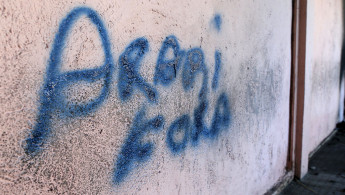France: Anti-Arab racism and Islamophobia 'nothing new' in Corsica
While Corsicans are torn between remaining part of France and self-rule or independence, many of them see foreigners, especially the 20,000 immigrants mostly of North African origins on their island, as agents and tools for French "occupation".
In truth, the recent racist riots are nothing new.
On Friday night, around 300 Corsicans staged an organised assault on a Muslim prayer hall. The mob vandalised the small mosque, and burned copies of the Quran, sparking a crisis that has yet to calm down.
But it would have been enough to be a regular reader of Corsica's magazines and newspapers for the past few decades to realise that racism in the island is not recent.
"What happened is just the peak eruption of racism and Islamophobia," said Jamal al-Hamri, an expert.
"What happened is not an isolated incident, and was staged in the name of defending the republic. It could have been a real tragedy," he added.
Death threats
The New Arab met with some North African labourers who had lived in Corsica before moving to France.
They spoke of very harsh conditions and even death threats.
"The Corsican man pointed a rifle at me and threatened to kill me," Mohammad Omari, retired worker, said. Omari was owed some money.
"Corsicans are armed and there are weapons everywhere" on the island, he added.
For decades, racist slogans like "Arabs out" (arabi fora) have been in use in the island, starting with the arrival of Arab labourers who usually worked in agriculture.
In June, teachers who wanted to teach students an Arabic song received threats. Anti-Arab graffity was spray-painted on the school's walls.
French media and some politicians have tried to portray the recent anti-Arab incidents as a natural reaction to an alleged attack by angry youths from Arab origins against firemen and police officers. The youths came from the impoverished suburbs of Ajaccio.
But the sit-in in solidarity with the officers went out of bounds, said Jamal Hamri.
"What is the link between an attack by a small group and burning down a place of worship?" he asked, saying the state and the police have failed to protect its citizens.
To be fair, the prime minister and interior minister condemned both the attacks on the firemen and on the Muslim prayer hall.
Self-restraint
The leaders of the Muslim community in France have called for self-restrained, asking Muslims to avoid escalating the situation.
Many will have close to their minds the negative image of Muslims many French now have in the wake of the terrorist attacks in Paris in January and November this year.
But many Arabs on the island still bitterly remember the unsung role their ancestors played in the French army that liberated the island from Nazism in 1943. This has not vouched for them with those on the island who want them gone.



